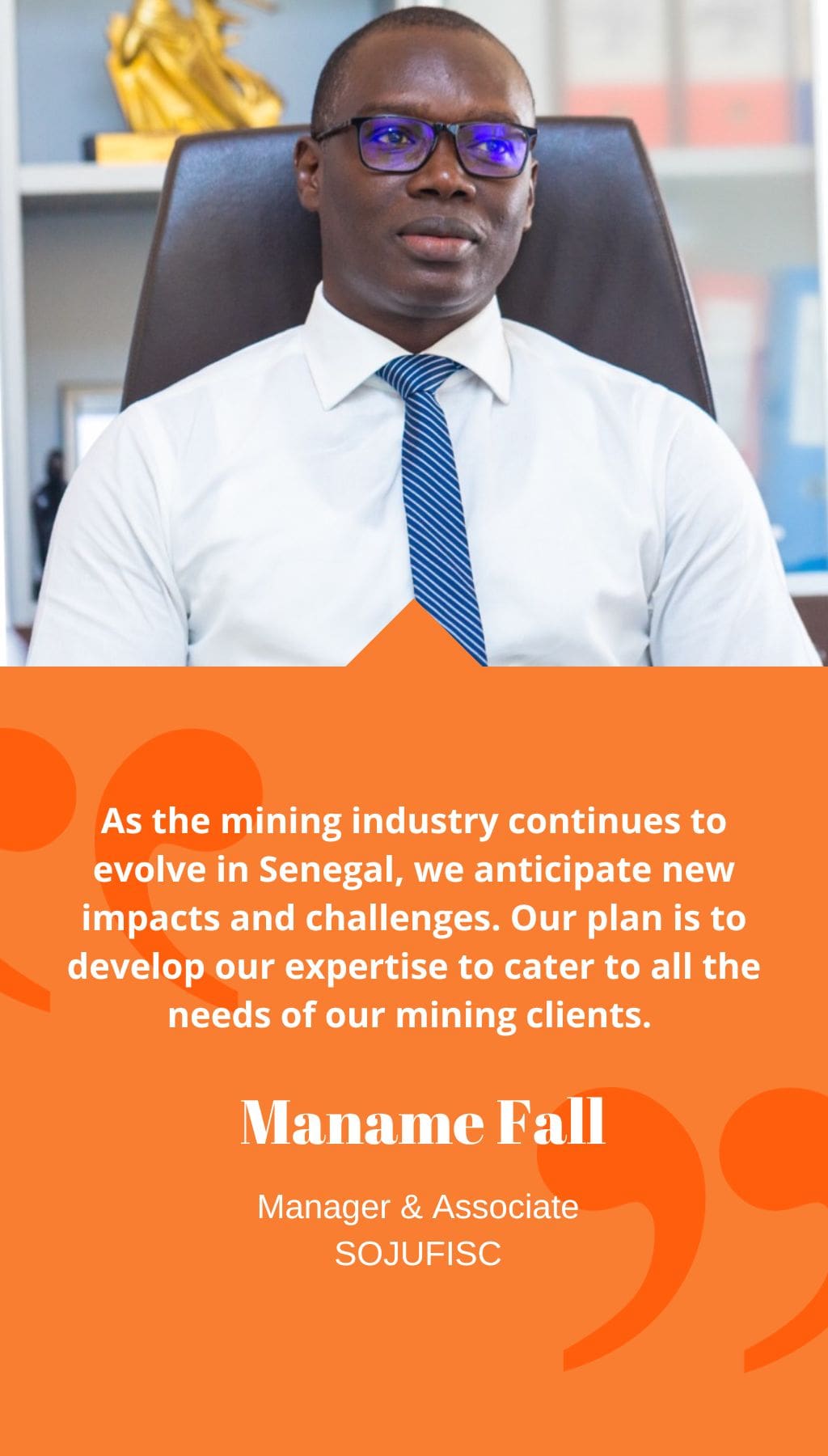
- Senegal | 2 May 2019

Could you please introduce SOJUFISC and provide an overview of its development over the years?
Certainly. SOJUFISC was established in 2006 and has since experienced significant growth. Currently, we have a team of 20 professionals working across two major departments: a legal department, a tax department, and an accounting department. While we primarily serve the mining sector, we also work with commercial companies and those in the oil and gas industry, making us well-versed in the natural resources segment.
Our client base includes mining companies in various stages, from those currently in production to those in the exploration phase. We offer comprehensive advice and support to companies throughout their development, including assistance with administrative challenges. Since we frequently collaborate with large multinational companies that have headquarters abroad, our work often carries an international dimension. To expand our reach, we have also established a subsidiary in Burkina Faso, and we have plans to open an office in Côte d’Ivoire in 2019.
What advantages does SOJUFISC offer to companies compared to larger multinational law firms?
One of our key advantages lies in our strong local connections within the mining sector. When mining companies initially entered the Senegalese market, they faced challenges in connecting with local suppliers due to the industry’s underdeveloped nature at the time. However, we have extensive experience in the local mining industry, and our breakthrough moment came when we assisted Mineral Deposits Ltd in overcoming obstacles highlighted by larger firms. We proved that their plans in Senegal were indeed feasible, earning us recognition and bolstering our reputation. In the mining business, networks and recommendations play a crucial role, and our solid reputation built over the years has significantly contributed to our success.
Senegal recently updated its mining code after almost two decades. How do you expect these changes to impact the industry?
The recent changes to Senegal’s mining code reflect the government’s intention to ensure a fairer distribution of benefits to local communities and the general population. The previous mining code, introduced in 2003, focused primarily on attracting investors. However, the current regime, which assumed power in 2012, recognized the need to revise the code to better serve the interests of Senegal and its people. As a result, taxes have been increased, and royalties have been raised from 3% to 5%. Furthermore, the new code includes a provision stating that companies will operate under the tax regime specified in their original agreements, which won’t be altered if changes are made to the general tax code.
How do mining companies view the changes made to the Mining Code?
The changes initially presented challenges, especially when the government proposed a new tax in 2012. This tax was met with opposition from various parties, including government advisers, as it would have affected companies with existing agreements in place. However, in court cases that followed, companies with pre-existing agreements prevailed, highlighting the importance of honoring those agreements.
How does SOJUFISC plan to expand its presence beyond Senegal?
Our focus for expansion lies in Côte d’Ivoire and Burkina Faso, two countries that are next on our radar. We aim to establish subsidiaries in the major mining countries of West Africa, allowing us to support our clients effectively and foster valuable partnerships.
As the mining industry continues to evolve in Senegal, we anticipate new impacts and challenges. Our plan is to develop our expertise to cater to all the needs of our mining clients. For example, as deforestation becomes a growing concern and the rehabilitation of mining sites gains importance, we aim to address these issues. Since Senegal’s mining industry is not as developed as that of some other countries, there is a gap in expertise during the later stages of a mine’s life. We intend to fill this gap and grow alongside our clients as their projects progress. Building long-standing relationships is our priority, and having a diverse client base allows us to have a broader perspective and a wider range of expertise.














